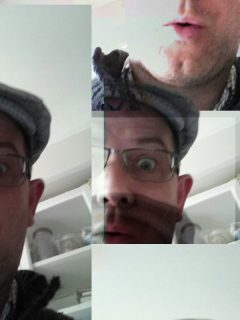 Digital Historian, Professor Shawn Graham, talks about his online course, HIST 3814/DIGH 3814: Crafting Digital History with Ainslie Coghill and Nick Ward. A short excerpt can be found below with the full story, “Crafting Digital Learning: Digital History online course focuses on learning through collaboration, compassion, and glorious failures“, available online. Learn more about this exciting online course that challenges students to study History differently and makes it okay to “fail”.
Digital Historian, Professor Shawn Graham, talks about his online course, HIST 3814/DIGH 3814: Crafting Digital History with Ainslie Coghill and Nick Ward. A short excerpt can be found below with the full story, “Crafting Digital Learning: Digital History online course focuses on learning through collaboration, compassion, and glorious failures“, available online. Learn more about this exciting online course that challenges students to study History differently and makes it okay to “fail”.
The COVID-19 health pandemic has challenged postsecondary institutions to extensively reconfigure their teaching and learning models. And while there has long been impassioned discussion on how the contemporary university might continue to evolve to match our increasingly digitally centred realities, the health crisis necessitated that all classes move online in the span of about a week.
“Moving everything to the web all at once presents a challenge for teachers and students,” says Professor of History and Digital Humanities, Shawn Graham.
“This isn’t ‘online learning’; it’s emergency content delivery. Either way, the result can feel like it’s divorced from the person who created it, and their intensely personal research and teaching style.”
Nevertheless, Carleton University’s faculty and instructors have answered the call, made sacrifices, and prioritized students’ wellbeing while working through this unprecedented full transition to online teaching and learning.
Luckily for Graham, he has had several years to fine tune his online course, Crafting Digital History (which was first developed courtesy of an eCampusOntario grant). The third-year methodology course is, in part, a reflection of Graham’s own trajectory as both an academic and teacher of Digital History. “‘Digital history’ isn’t just the history of the internet or the web; it’s also about how what we can know or what questions we can ask are changed by the fact of the digital. What does history look like when you can ‘read’ tens of thousands of documents at once, right? It’s also about what a historical perspective implies for the future of digital technologies and how knowledge is constructed,” explains Prof. Graham.
The open access version is available for the general public to follow along week by week and to participate. Graham even offers a “social chat” and “questions chat” for open access participants to discuss their progress.